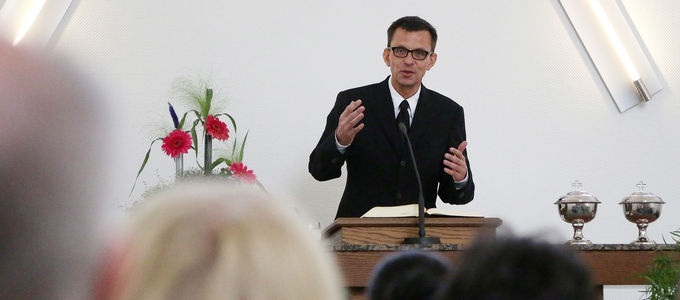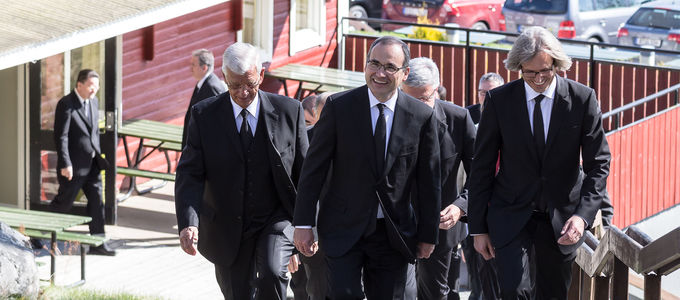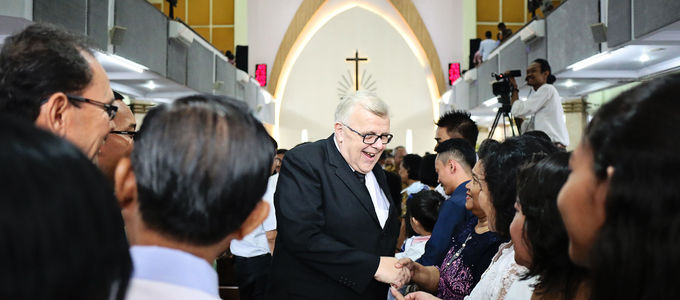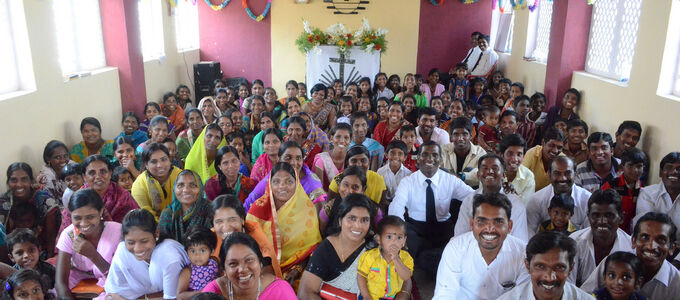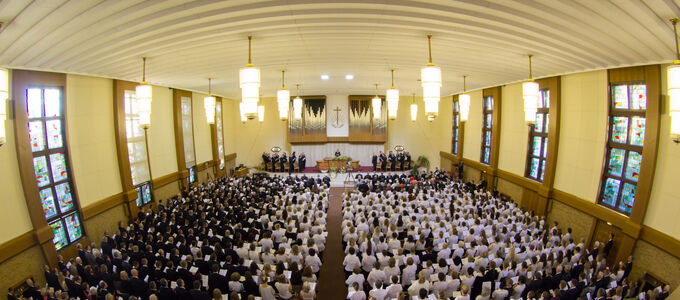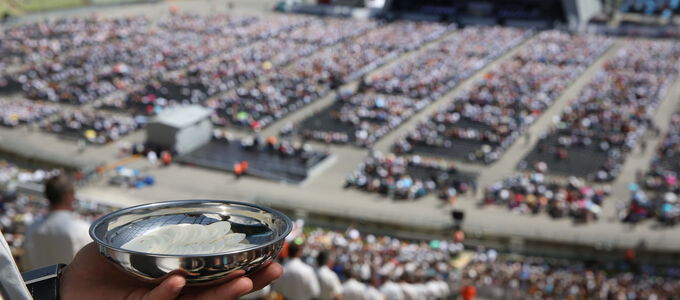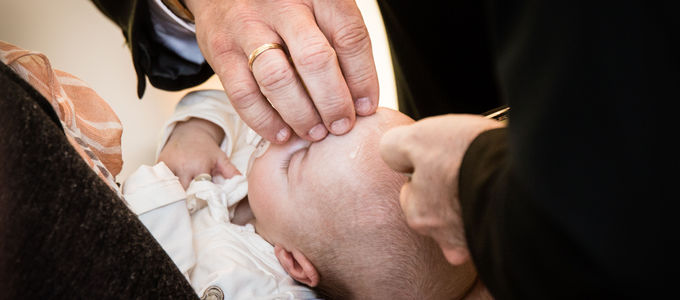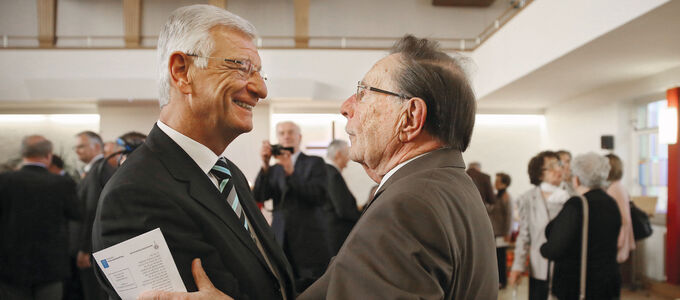In the picture (1): Testifying with the camera
To share means to communicate. Photos do not just preserve memories. They can also picture and testify of faith. But, please, no cameras in divine services! But why not? Maybe we should have them, but then with the corresponding know-how. Here is the first article of a series.
There are plenty of motifs: children being baptised, couples getting married, people celebrating anniversaries, and all the well-wishers. Then there are ministers in the making and retirees, musicians, choir members, and choir leaders. And of course there are plenty of feelings in a congregation: joy, emotion, intimacy, and warmth.
Between seeing and being seen
However, a divine service is an encounter with God. This has to do with contemplation and sanctification, which flourish best in silence. And it also produces intimate moments, which one wants to savour in a safe environment. An inconsiderate photographer can quickly become a disturbing factor—and sometimes a nuisance.
Is it OK to take photos at all in a worship setting?
That is a definite yes. “Photos are part of public relations work.” And: “Public relations work is missionary work.” This is what it says on the website which has just been launched. It is full of information how one can accomplish the balancing act of evangelising with the camera and at the same time respecting the sanctity.
A treasure trove of experience
The expertise comes from Oliver Rütten, who has put all he knows into this manual: over two decades he has taken thousands of photos, has trained hundreds of photographers, and shared his knowledge with many while working as an editor for nac.today.
His ebook “Photography in Divine Service” was first published in 2013. Five years later, the New Apostolic Church published an expanded edition—and for the first time an English-language translation. In 2020 a Spanish version followed. And since 2023 the same information can also be read in French—on the quadrilingual website nac.photos.
Practical tips from the field
From communicating with the organisers to making a list of subjects to trouble shooting—this is a book full of practical tips from an expert. Jpeg or raw data? The book deals with technical questions as well as the basics of image design: from the golden ratio to playing with light and shadow.
Fair enough, other books on photography cover the same topics, right? Sure, but nac.photos does not only discuss the technical aspects of photography, but also gives concrete tips on etiquette in a worship setting.
- How early communication with the organisers ensures that everything runs smoothly.
- Why it is better to have as few photographers as possible.
- How a good photographer blends in.
- How the camera respects the rights and feeling of those depicted.
- Why the altar area must remain sacred.
- When prayers, sacraments, and acts of blessing can be photographed.
Spiced with humour and armed with a lot of experience, the new media product of the New Apostolic Church has tips and pointers for everyone—both the photographer whose job it is to take good photos, and the congregation who wants to enjoy a divine service and then look back and do some reminiscing.
Over the next few weeks, nac.today will summarise the most important topics in a short series.


